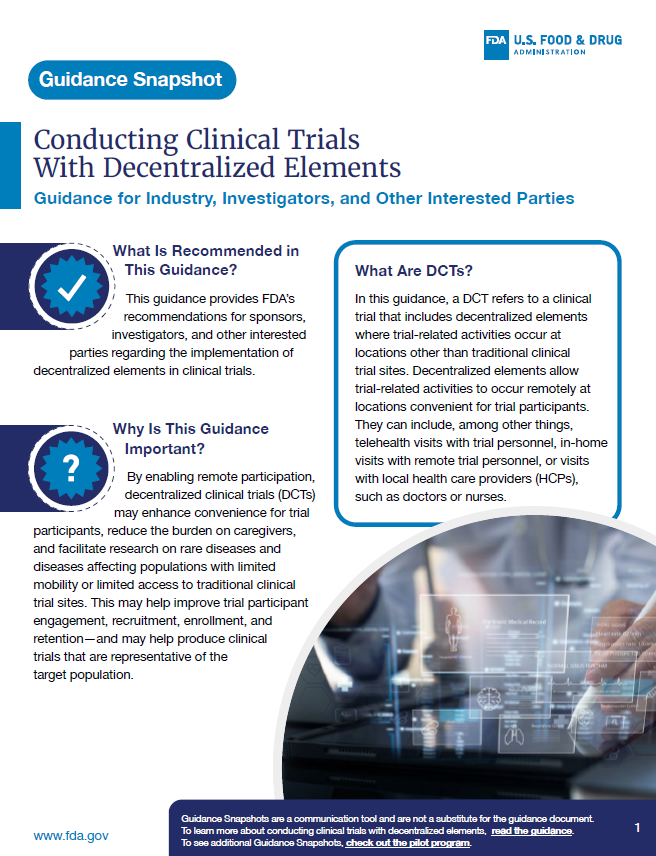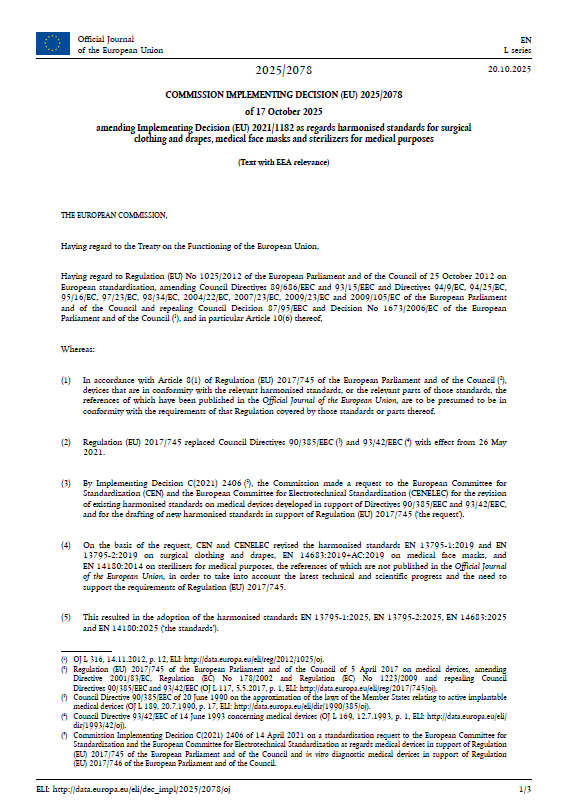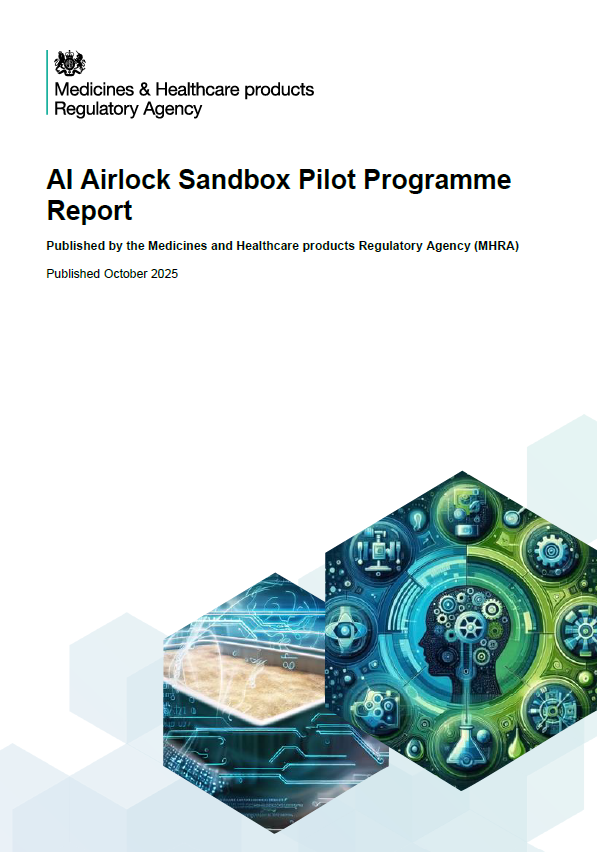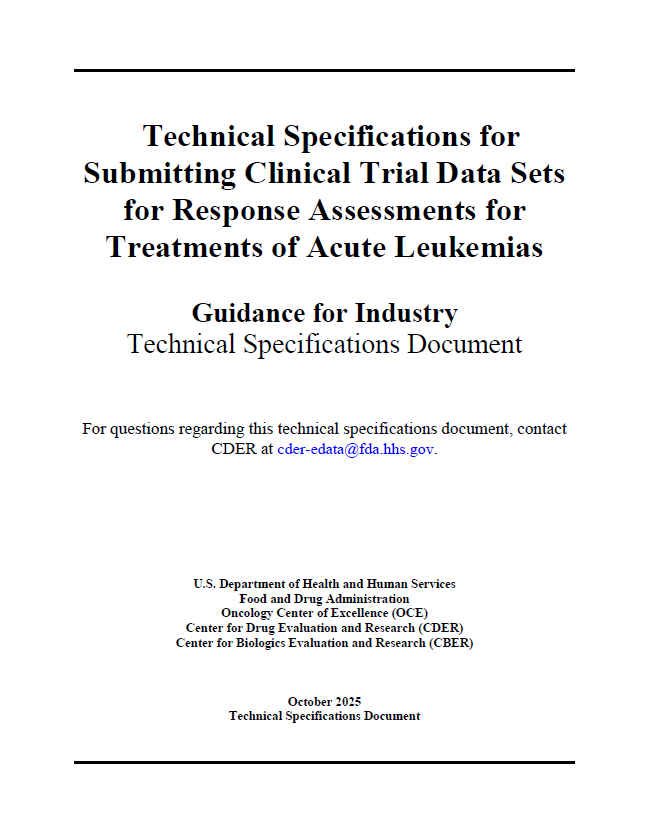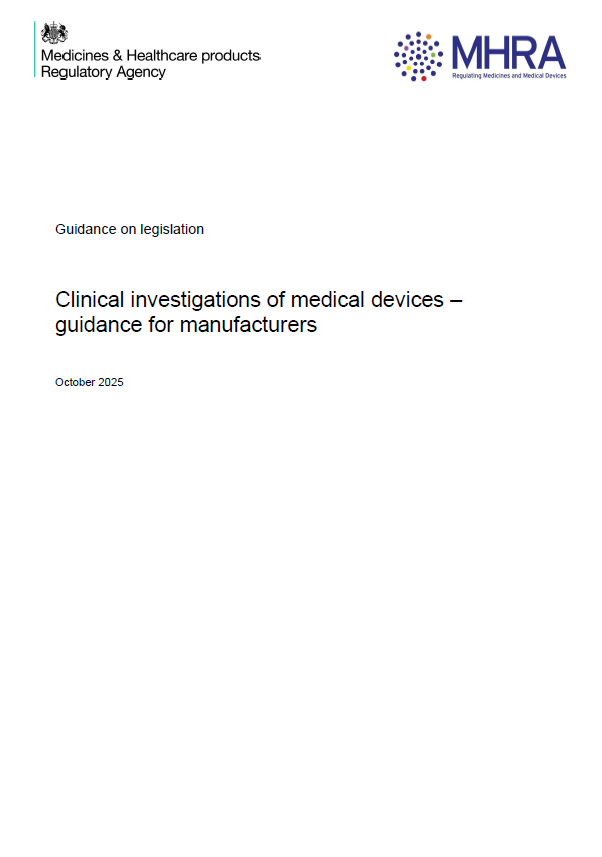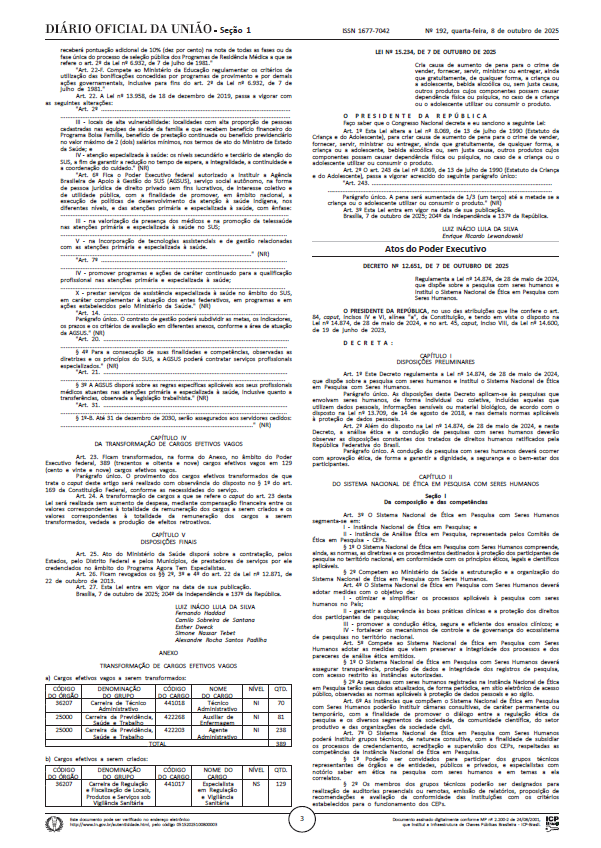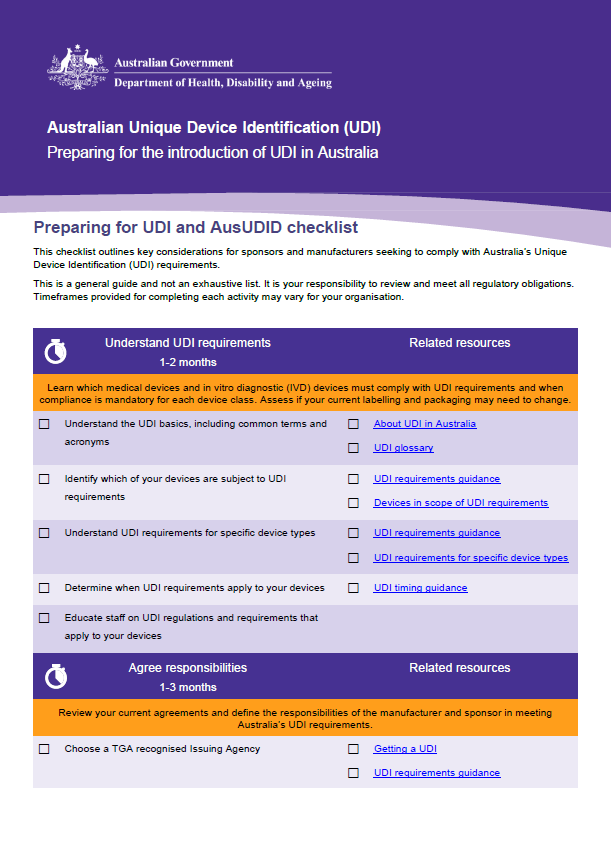New ANVISA Manual Guides Medical Device and IVD Manufacturers Through Brazil’s Regulatory Pathway
The newly published ANVISA manual provides updated guidance for the regularisation of medical devices and in vitro diagnostic products in Brazil. Covering topics such as device classification, documentation, GMP certification, and use of the Solicita system, this manual is essential for medical device and IVD manufacturers looking to expand into Brazil. By ensuring regulatory compliance, manufacturers can achieve faster access to Brazil’s large and growing healthcare market.
FDA Issues Strategic Guidance on Decentralized Clinical Trials – A Turning Point for Medical Device and IVD Manufacturers
The latest FDA guidance on decentralized clinical trials (DCTs) marks a significant development for IVD and medical device manufacturers. By incorporating digital health technologies, remote monitoring, and home-based device usage, DCTs allow for enhanced trial flexibility and patient accessibility. This guidance clarifies regulatory expectations, especially around investigational product distribution, informed consent, and oversight, supporting innovation while maintaining compliance.
Atualização das Normas Harmonizadas para Dispositivos Médicos na União Europeia
As novas normas harmonizadas para dispositivos médicos (EN 13795-1:2025, EN 13795-2:2025, EN 14683:2025 e EN 14180:2025) representam uma atualização fundamental para os fabricantes que operam sob o Regulamento Europeu de Dispositivos Médicos (MDR). Esta decisão da Comissão Europeia impacta diretamente o processo de Marcação CE, a avaliação da conformidade e o controlo de qualidade de produtos como máscaras médicas, vestuário cirúrgico e esterilizadores.
MHRA lança programa-piloto de regulação de IA para dispositivos médicos
A MHRA lançou o AI Airlock Sandbox, um programa-piloto inovador que visa acelerar a regulamentação de dispositivos médicos com Inteligência Artificial (IA). Esta iniciativa estabelece um novo padrão para a avaliação de conformidade CE, em linha com o MDR, IVDR e o futuro AI Act europeu. Para fabricantes e distribuidores de dispositivos médicos e IVD, compreender este modelo de sandbox regulamentar é essencial para garantir conformidade, rastreabilidade e segurança dos algoritmos de IA em soluções de software médico (SaMD). A Smart MDR apoia empresas na adaptação a estas novas exigências e na integração segura de IA nos seus produtos.
Novas normas internacionais em desenvolvimento para o setor dos dispositivos médicos
A ISO e a IEC estão a desenvolver e atualizar várias normas internacionais que afetam diretamente o setor dos dispositivos médicos e IVD, incluindo temas como qualidade, cibersegurança e software médico. Estas normas, como a ISO 13485, ISO/IEC 82304-2 e IEC 81001-5-1, reforçam o compromisso global com a segurança, interoperabilidade e inovação responsável.
EUDAMED v2.18.0: Nova Atualização Traz Melhorias Importantes para Fabricantes e Distribuidores de Dispositivos Médicos
A EUDAMED é a base de dados europeia que centraliza informação sobre dispositivos médicos e de diagnóstico in vitro (IVD), essencial para a conformidade com o Regulamento (UE) 2017/745 (MDR) e o Regulamento (UE) 2017/746 (IVDR).
Com a atualização v2.18.0, fabricantes, distribuidores e representantes autorizados beneficiam de um sistema mais robusto, transparente e interoperável.
Notified Bodies apelam à Comissão Europeia por um quadro mais eficiente e harmonizado no contexto do AI Act
A Team NB e o NBCG-Med apresentaram à Comissão Europeia um contributo que sublinha a importância de simplificar e harmonizar o processo de avaliação de conformidade no contexto do AI Act e dos regulamentos MDR/IVDR. O documento alerta para o risco de escassez de Organismos Notificados especializados, o aumento dos custos de conformidade e o impacto sobre as PME do setor médico.
Swissmedic lança novo portal eletrónico para comunicações de segurança
A Swissmedic lançou o novo portal eletrónico de comunicações de segurança (eGov Safety Communication Service), uma ferramenta digital que permite a transmissão segura e encriptada de informações entre as empresas e a autoridade suíça de medicamentos e dispositivos médicos. Esta iniciativa visa simplificar os processos de conformidade, reduzir a carga administrativa e reforçar a vigilância pós-comercialização de dispositivos médicos e IVD. A Smart MDR destaca esta inovação como um exemplo de digitalização inteligente no setor da saúde, alinhada com as tendências europeias de modernização e eficiência na comunicação entre fabricantes e autoridades competentes.
FDA publica novas especificações técnicas para submissão de dados clínicos em ensaios sobre leucemias agudas
A FDA lançou novas especificações técnicas para submissão de dados clínicos em leucemias agudas, definindo padrões rigorosos de qualidade e interoperabilidade.
Comissão Europeia e EDPB publicam orientações conjuntas sobre a articulação entre o DMA e o RGPD
A Comissão Europeia e o EDPB publicaram um guia conjunto que clarifica a relação entre o Digital Markets Act (DMA) e o Regulamento Geral sobre a Proteção de Dados (RGPD). O objetivo é garantir uma aplicação coerente e complementar entre ambos os regulamentos, promovendo mercados digitais justos, interoperáveis e seguros, sem comprometer a privacidade e os direitos fundamentais dos utilizadores europeus.
MHRA atualiza orientações sobre investigações clínicas de dispositivos médicos
A MHRA publicou uma versão atualizada das orientações sobre investigações clínicas de dispositivos médicos, clarificando os requisitos de submissão, aprovação e monitorização no Reino Unido. O guia diferencia os regimes aplicáveis na Grã-Bretanha e na Irlanda do Norte, reforçando a previsibilidade regulamentar, a segurança dos participantes e a qualidade científica dos ensaios clínicos.
Brasil regulamenta o Sistema Nacional de Ética em Pesquisa com Seres Humanos
O Governo Federal do Brasil regulamentou o Sistema Nacional de Ética em Pesquisa com Seres Humanos, através do Decreto nº 12.651/2025. A medida reforça a transparência, a integridade e a segurança nas pesquisas clínicas conduzidas no país, assegurando o respeito aos direitos dos participantes e promovendo o alinhamento com as boas práticas clínicas internacionais.
TGA atualiza orientações sobre software de apoio à decisão clínica
A TGA publicou novas orientações sobre o software de apoio à decisão clínica (Clinical Decision Support Software – CDSS), clarificando quando este tipo de software é considerado um dispositivo médico e quando pode beneficiar de isenção de inclusão no ARTG. O documento visa apoiar fabricantes, promotores e desenvolvedores na conformidade com os requisitos regulamentares e na avaliação do risco associado a soluções digitais de saúde.
TGA publica lista de verificação para implementação do sistema UDI na Austrália
A TGA publicou uma lista de verificação para apoiar fabricantes e promotores na implementação do sistema de Identificação Única de Dispositivos (UDI) na Austrália. O documento detalha os passos necessários para cumprir os novos requisitos de rastreabilidade, rotulagem e submissão de dados à base de dados AusUDID, reforçando a segurança e a transparência no setor dos dispositivos médicos.
MHRA atualiza orientações sobre investigações clínicas de dispositivos médicos
A MHRA atualizou o seu guia sobre investigações clínicas de dispositivos médicos, introduzindo novos requisitos de submissão, aprovação e monitorização no Reino Unido. A atualização, alinhada com os UK Medical Devices Regulations 2025, reforça a transparência, a rastreabilidade e a segurança dos participantes, garantindo dados clínicos fiáveis e conformidade com as Boas Práticas Clínicas (GCP).
Cibersegurança em Dispositivos Médicos: Guia de Conformidade da TGA
A TGA publicou um guia atualizado sobre cibersegurança em dispositivos médicos. Conheça os requisitos regulamentares, boas práticas e responsabilidades dos fabricantes para proteger a segurança do doente e a integridade dos sistemas de saúde.
FDA publica orientação sobre Computer Software Assurance para sistemas de produção e qualidade
A FDA publicou a orientação final sobre Garantia de Software Informático (CSA) para software de produção e sistemas de qualidade. Esta abordagem baseada no risco ajuda os fabricantes a garantir a conformidade, concentrar os esforços de validação onde são mais necessários e adotar tecnologias inovadoras, como automação, IA e sistemas em nuvem — melhorando, em última análise, a qualidade dos dispositivos médicos e a segurança dos pacientes.
Exportação de Medicamentos a Partir da Austrália: Guia Atualizado da TGA
A TGA australiana publicou um guia atualizado sobre exportação de medicamentos. Descubra os requisitos legais, certificação, Export Only medicines e novas regras para empresas e particulares que exportam produtos farmacêuticos da Austrália.
FDA publica orientação sobre políticas de aplicação para testes de diagnóstico in vitro durante emergências de saúde pública
A FDA publicou uma nova orientação sobre políticas de enforcement aplicáveis a testes de diagnóstico in vitro durante emergências de saúde pública, ao abrigo da secção 564 do FD&C Act. O guia define os critérios para o início e término destas políticas, oferecendo previsibilidade aos fabricantes em situações críticas, sem comprometer a segurança pública.
Nova regulamentação da Comissão Europeia simplifica atribuição de UDI a armações, lentes oftálmicas e óculos de leitura pré-montados
A Comissão Europeia adotou o Regulamento Delegado (UE) 2025/1920, introduzindo o conceito de Master UDI-DI para armações de óculos, lentes de óculos e óculos de leitura prontos a usar. Esta alteração reduz a proliferação de registos UDI na EUDAMED, simplifica a conformidade para os fabricantes e mantém a segurança dos pacientes — com aplicação a partir de 1 de novembro de 2028, embora seja permitida a adoção antecipada.

